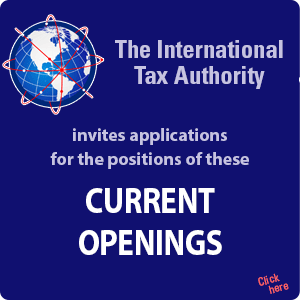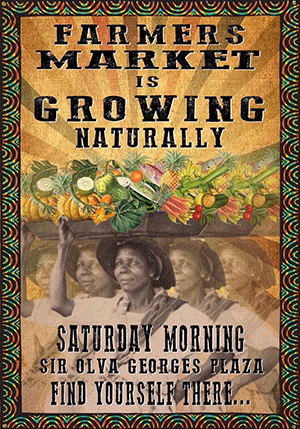COMMENTARY: The Constitution – A Means to an End

Shaina Smith
By Shaina Smith, Contributor
We find ourselves in thought-provoking times and not just because of the COVID-19 pandemic but this year December, it will be 70 years since the local legislature was reconstituted and local elected representation returned to our shores.
Some may ask why is that a big deal? I am glad you asked! Prior to 1950, the previous legislature was abolished in 1902 and we were governed as a presidency of the Leeward Islands Federation from Antigua and we did not have representation on the federal council.
This MAJOR political milestone was a catalyst for our socioeconomic development as we became a decision-maker in shaping our destiny. As in 1949, we are once again taking stock of our political journey and must answer important questions that our children’s children will be the benefactors of.
As we take pause for this constitutional review, I believe it is important we put it in its functional context as well and the purpose of a constitution is for the governance of a society.
The concept of governance is as old as human civilization and simply put is the process of decision-making and the process by which decisions are implemented (or not implemented). The constitution is a tool for political advancement, not the advancement itself.
It helps to facilitate good governance and in order to assess how well the current document is working for us, we need to measure how well we have been and are being governed and whether the improvements needed are constitutional and/ or elsewhere in the machinery.
These are the eight (8) characteristics of good governance to put in your back pocket when going into the townhall meetings:
1. Participation – All men and women should have a voice in decision-making, either directly or through legitimate intermediate institutions that represent their interests. Such broad participation is built on freedom of association and speech, as well as capacities to participate constructively.
2. Rule of Law – Legal frameworks should be fair and enforced impartially, particularly the laws on human rights.
3. Transparency – Transparency is built on the free flow of information. Processes, institutions, and information are directly accessible to those concerned with them, and enough information is provided to understand and monitor them.
4. Responsiveness – Institutions and processes try to serve all stakeholders.
5. Consensus orientation – Good governance mediates differing interests to reach a broad consensus on what is in the best interest of the group and, where possible, on policies and procedures.
6. Equity – All men and women have opportunities to improve or maintain their well-being.
7. Effectiveness and Efficiency – Processes and institutions produce results that meet needs while making the best use of resources.
8. Accountability – Decision-makers in government, the private sector and civil society organisations are accountable to the public, as well as to institutional stakeholders.
9. Strategic vision – Leaders and the public have a broad and long-term perspective on good governance and human development, along with a sense of what is needed for such development. There is also an understanding of the historical, cultural, and social complexities in which that perspective is grounded.
These characteristics apply to corporate governance as well as national governance. The objective of good governance is not to create a utopia but assures that corruption is minimized, the views of minorities are considered and that the voices of the most vulnerable in the society are heard in the decision-making process.
It is also responsive to the present and future needs of a society. We must remind ourselves that we are stewards and owe it to the future generations to be sober- minded and make informed decisions on how we move our country forward.
Of all the characteristics above, number-nine is the most important to me as we need a road map to manage from. What we have been doing is akin to driving a car in an unfamiliar city, without a navigation system or any gauges working in the dashboard.
We have kicked this can down the road far enough and need to define a 25-year national vision based on broad consensus and participation by all levels of the society. We know we cannot do everything because of finite resources (time, people, money) and need to focus our energies on what adds value in both the short and long terms. Many of us have become apathetic to “government” because of broken promises and rhetoric and I get that. But governance is not for the House of Assembly only but also for us as the civil society, especially those of us under 50 years of age.
The time is now for us to re-engage and raise our level of expectation of the systems that affect our quality of life to be more responsive, efficient and effective. Excellence is the passing grade and exceeding expectations is an A+ in my book and we are not doing as well as we could have been over the last 25 years.
I hope and pray that in this season we close the “talk shops” and get down to the business of governing and policymaking. Our focus needs to be on productivity and not busyness; proactive and not firefighting. Revising a constitution is the easy part.
We put things on paper all the time. What we do with it from the standpoints of rule of law (enforcement), accountability and transparency is the harder, more important part of the big picture. Hear me well Virgin Islands, we must prepare ourselves for the next stage in our political, social, and economic journey, but we must first understand and then decide what the next stage looks like. You wouldn’t wear a tuxedo to a softball game because you dress for the occasion.
So, what is this occasion? It is not a constitutional review exercise but building a nation that our grandchildren will be proud to call home! This requires more than nice sounding ideas or lip service but commitment by the entire society as we are only as strong as our weakest link and we are not doing well unless we all are (equity). Done the Talk! Time for Action!
Copyright 2025 BVI News, Media Expressions Limited. All Rights Reserved. This material may not be published, broadcast, rewritten or distributed.




















Shaina, good read. Nonetheless, to me though, all 9 governing processes and practices listed are critical and important; a holistic approach must be employed to attain effective governance. Vision is important but a vision is just a hope, dream….,etc of where an organization wants to go and what it wants to become. To bring a vision to fruition or to approach fruition, requires a thing call GOST——-Goals and Objectives and Strategies and Tactics. To GOST, operations and planning must be added.
Effective planning is vital for national growth, development and sustainability. The VI needs a codified national development plan (NDP) that must be approved by a majority of the electorate through a referendum. Lots of plans are developed but often fail due to poor or no execution. Too often, plans become book ends on a shelf or dormant files on a computer.